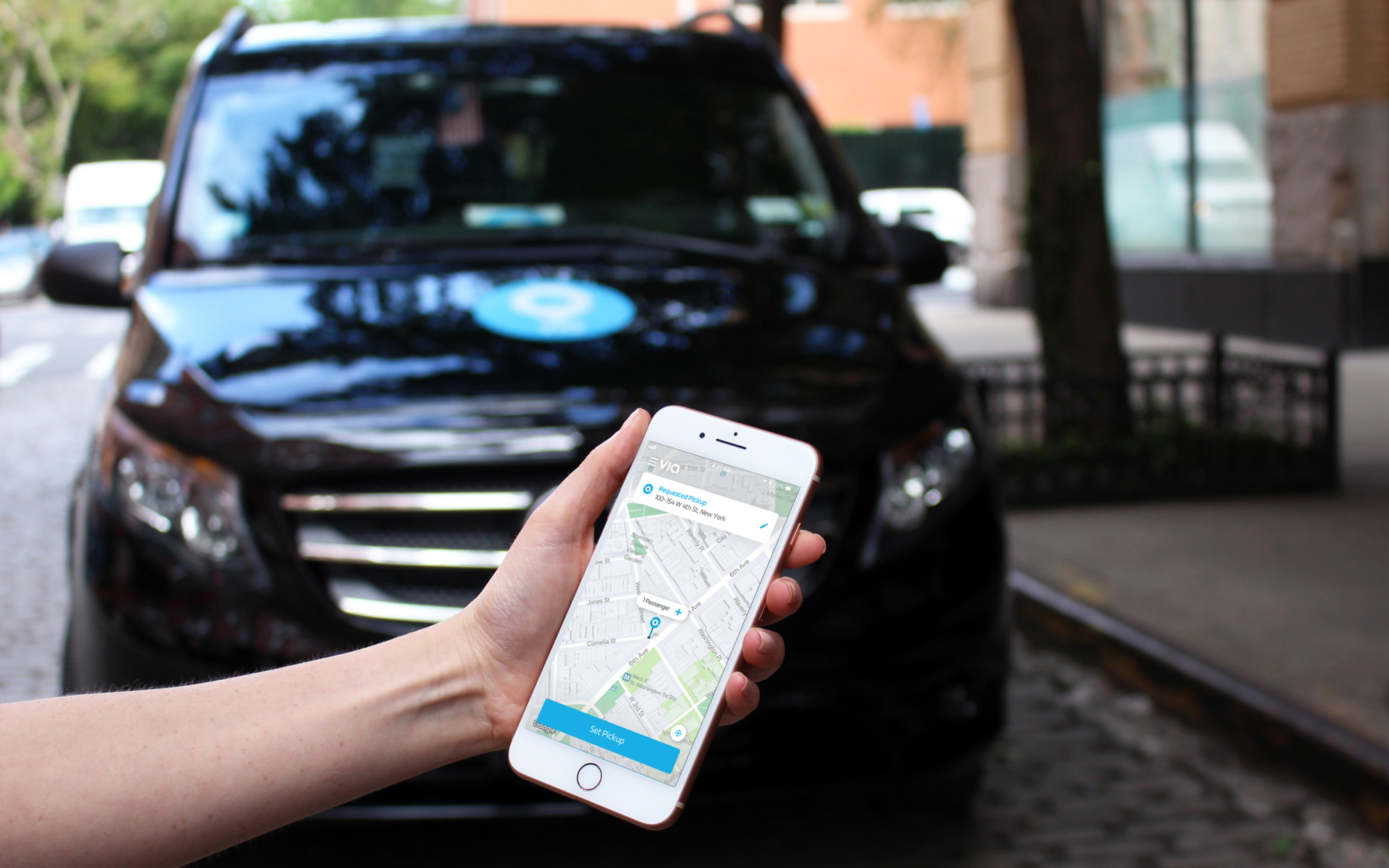A record-breaking cold night in Siberia back in 2012 spurred the creation of a more reliable ride-hailing service that spread through Russia and now that company is making its way to the U.S. First stop: New York City.
inDriver, a new Uber and Lyft ride-hailing app alternative arrives Tuesday, the same day as the New York City Taxi and Limousine Commission meets for a final vote on driver earnings and pay rules for app-based drivers.
The new ride-hailing app isn't just a Uber copycat. Instead of ordering a car and getting a price quote for the ride and then matching with a driver after you agree to the price, the app has passengers set their own fares. On the app you throw in a "bid" for a route. Drivers get the offer and come back with their price. After negotiating the price, on the app there's a list of different offers with other details like estimated arrival time, driver rating, and car type.
The company says it already has 14 million users and 10 million downloads from Google Play. The app is also available on iOS. It's the same app for drivers and users. For the first six months in New York, drivers won't have to pay any commission fees, so they'll keep the entire fare after taxes, tolls, and other fees. This is a promotion to lure drivers frustrated with handing over portions of every ride to Uber and Lyft. After the no-commission period drivers will be charged 5 to 8 percent. Uber's rate is about 25 percent.
inDriver’s CEO of North America Sasha Ozeran described the car service in a phone call as a "fully transparent model" that lets drivers independently negotiate terms. (The company first started as a social media group called Independent Drivers where riders could request a car for a requested price, hence the name inDriver.)
"We're truly trying to bring power back to both passengers and drivers," she said. So far 5,000 New York-approved drivers have signed up for the app. Ozeran says the system works to passengers' benefit as well with a more affordable option for travelers heading in or out of outer boroughs.
For anyone trying to game the system, there's a minimum price set for routes, so you can't throw in a $1 offer and hope a desperate driver will take you for a ridiculously cheap ride. "The driver has to make honest living," Ozeran said.
Here's how the app works with "bids" to drivers for the price you're willing to pay:
Other companies like inDriver are trying to chip into the success of Uber and Lyft. But since Uber (and to a lesser extent Lyft) dominates the traditional ride service market, startups are leaning into alternative options with unique features or pricing structures.
Via, with a presence in New York, Chicago, and Washington, D.C., is all about shared rides. Before Uber Pool and Lyft Shared (previously known as Lyft Line) rides arrived in 2014 and 2015, Via was already operating in New York and strongly associated with shared car service. It launched there in 2013.
"Everyone expects and knows they are going to share," Via CEO Daniel Ramot said in a recent phone call.
Ramot said that in New York, 45,000 passengers use the service daily. The company does offer private rides for those moments when you just need the car to yourself, but Ramot said only 5 percent of users are opting for the solo ride. Which makes sense -- that's when an Uber or Lyft ride makes more sense.
It also has designated drop-off spots to streamline drops off and time spent in the car. It recently offered a “price match” program to incentivize riders to try out the car service.

Capitalizing on a gap with Uber and Lyft service, Hitch is about intercity travel. That's longer distances, like, Los Angeles to San Francisco or Austin to Houston -- anywhere from 50 to 350 miles. The type of rides that would cost a small fortune for a rider to order on Uber and would need to pay out well to convince a driver to cover the long ride.
At the TechCrunch Disrupt tech conference back in September Hitch co-founder Kush Singh talked about tapping into a driver community that is willing to add some riders in the back seat to reduce travel costs and already has the mindset of "I'm going there anyways."
Reminiscent of Lyft's early origins as Zimride, the nascent service sees its competition more as Megabus or Greyhound bus services. It wants to offer a carpool option that's more door-to-door that going to a bus stop or station.
Knowing that Hitch specializes in long rides, Singh promises the middle seat won't ever be filled.
Focusing more on the driver experience and distinguishing itself from the pay model that Uber and Lyft use comes Bounce. Only available in San Diego, it's offering a new way to look at the ride-hailing driver experience. As Will Preston wrote on the The Rideshare Guy blog drivers are paid based on how often they drive, how long they've been with the company, and how much they promote Bounce. Drivers also get stock options.
How drivers get paid for rides harkens back to Uber and Lyft's early structure where an estimated price was given to riders. This leaves more room for traffic, longer rides, and other factors to more accurately reflect the final fare.
More distinguishing features are part of the new app, but details aside, it's another option for drivers and passengers trying find non-Uber or Lyft rides. Alternatives are out there, you just have to find them.































